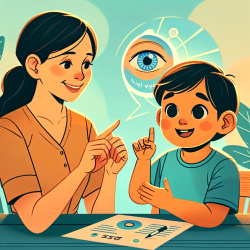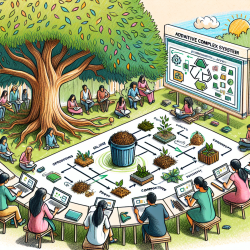Introduction
In the world of children's mental health, Family Peer Advocates (FPAs) are emerging as key players. They are parents who have navigated the mental health system for their own children and now help other families do the same. A recent study titled Evaluation of a Train-The-Trainers Model for Family Peer Advocates in Children’s Mental Health sheds light on how to enhance the skills of these invaluable advocates.
Why Train Family Peer Advocates?
FPAs provide crucial support, helping families understand and access mental health services. However, to maximize their impact, they need proper training. The study highlights a Train-the-Trainer (TOT) model that equips FPAs with the necessary skills and knowledge, ultimately improving their self-efficacy and effectiveness.
The Train-the-Trainer Model
The TOT model is designed to scale up the training of FPAs by using experienced advocates to train new ones. This approach not only enhances the reach of training programs but also ensures that FPAs across different regions receive consistent and high-quality training.
Key Findings
- Knowledge Gains: FPAs who underwent the TOT model showed significant improvements in their understanding of mental health services.
- Increased Self-Efficacy: The training boosted FPAs' confidence in their ability to assist families effectively.
- Scalability: The model proved to be a feasible and scalable solution for training FPAs across various regions.
Practical Implications
For practitioners looking to improve their skills, the study offers several takeaways:
- Embrace the TOT Model: Consider adopting this model to train new FPAs in your region. It ensures consistent quality and leverages the experience of seasoned advocates.
- Focus on Self-Efficacy: Training should aim to boost FPAs' confidence, enabling them to better support families.
- Continued Research: Practitioners should engage in ongoing research to explore new training modalities and improve existing ones.
Conclusion
The Train-the-Trainer model offers a promising approach to enhancing the skills of Family Peer Advocates. By focusing on knowledge and self-efficacy, this model not only benefits FPAs but also the families they serve. For those interested in delving deeper into the study, the original research paper provides a comprehensive overview of the model's development and evaluation.
To read the original research paper, please follow this link: Evaluation of a Train-The-Trainers Model for Family Peer Advocates in Children’s Mental Health.










